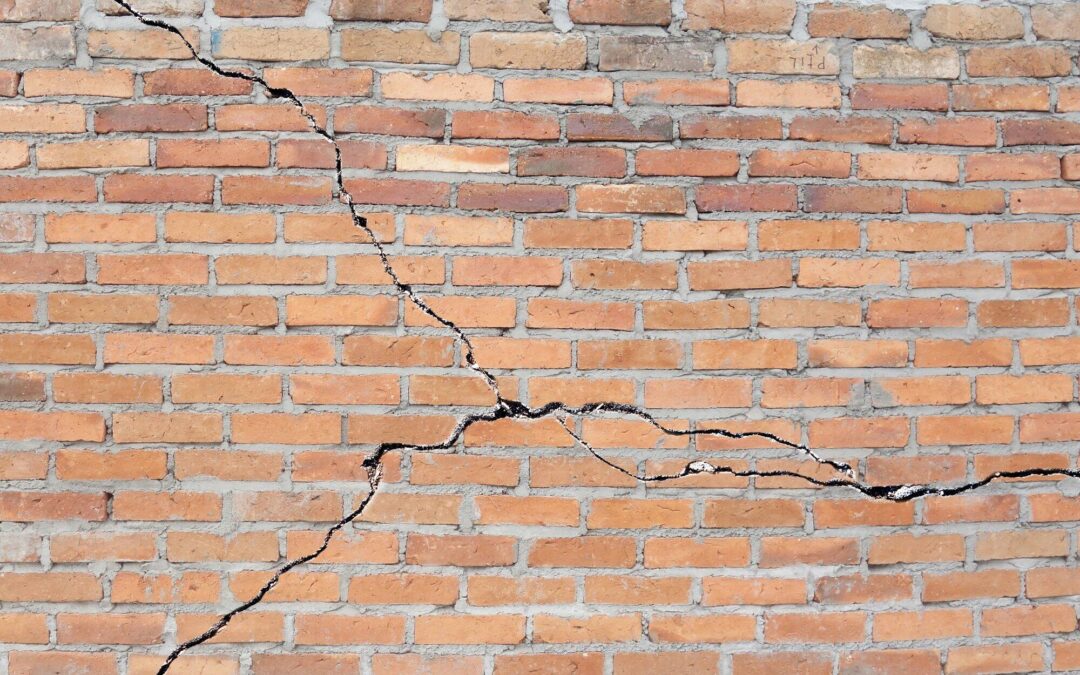Picture this: you just called an exterminator to deal with the huge crowd of ants in your home when you spot mold growing in your basement. It might have something to do with the leaky pipes you can’t seem to fix, but you’re too busy trying to patch the cracks in your floor to look at them again.
It’s not unusual for homeowners to need an emergency repair now and then, but your luck seems rotten. What gives?
If you’re dealing with a string of bad luck, you might only need one solution: foundation repair. A damaged foundation can cause a surprising and varied number of problems in your home, so it’s crucial to know what to check for. Let’s take a look at some of the signs it’s time for expert repair.
Cracked Walls, Ceilings, or Floors
The most obvious signs of foundation problems are cracks. You may notice them anywhere in your home, but they’re more likely to happen around windows or doorways.
These fractures are especially worrying when they occur in the brick or masonry of your home. These structures are durable and hard to break, and only serious shifting can damage them. A settling, shifting, or weakening foundation may be the culprit.
You should also worry if you notice that the fractures are getting larger. Anything bigger than 1/8 inch should be a red flag, and a stair-step pattern is almost always a foundation issue.
Stuck Doors and Windows
Is your door starting to drag every time you open it? Do you struggle to lift the sash of your window? Moisture issues and warping wood might be the culprits, but if a simple fix doesn’t help, you may be dealing with a foundation problem.
Sometimes, as the foundation shifts or settles, it messes with the way your door or window frames align. This can lead to stuck windows and doors that are difficult to open or close. Realigning the structural elements of your foundation is the only way to address this problem.
Visible Gaps Between Seams
As you look around for cracks, don’t forget to check for any visible gaps between seams in your walls or ceilings.
When your foundation settles and becomes uneven, it might cause some of your walls or flooring to sink lower than others. This can create small separations between your walls and ceilings, bricks, siding, or molding. You may also notice gaps around your cabinets, doors, and windows, and these structures may even appear to be separating from your walls.
Bowed Floors or Ceilings
The ceilings and floors of your home should be perfectly flat. If you notice any signs of bowing or unevenness, you may be looking at underlying foundation problems.
As the soil beneath your foundation becomes uneven, your walls and ceilings may mimic the shift. This happens in the same way that a sidewalk bends, shifts, or buckles as the ground beneath it moves.
Pay attention as you walk around your home. If you feel a noticeable slope or sagging in the floors, or if you can place a ball in the middle of your floor and watch it roll in the same direction each time, contact an expert for a foundation inspection.
Moisture and Water Issues
In some regions, a shifting foundation happens due to moisture in the ground. This moisture can infiltrate your home, sometimes turning into standing water that can cause serious damage to your belongings.
This can happen when the area around your foundation shifts, causing water to pool instead of running off down a slope. If you find standing water or an abundance of moisture in the ground-level rooms of your home, your foundation may not be properly graded. Otherwise, your foundation may have cracked in a way that allows water to leak into your home.
Even if you don’t see the moisture itself, you may notice efflorescence, or a chemical reaction that causes discoloration, on any concrete walls. Crumbling walls are also a bad sign.
It’s crucial to address these moisture issues as soon as possible. Not only can this help you protect your home and belongings, but it can also keep mold and mildew at bay. Because mold loves damp areas, you might find yourself looking for mold remediation and foundation repair services if you aren’t careful!
Plumbing Issues
Just as it causes your walls and floors to shift, a settling foundation can wreak havoc on your plumbing.
A shifting home puts excess stress on your pipes, which can create plumbing issues throughout your home. You may be looking at anything from backed-up drains to sudden leaks, all of which can be a nightmare to fix. Getting foundation repair fast can help prevent future damage.
Pest Infestations
Even if you haven’t noticed them yet, tiny gaps, fractures, and cracks in your home can act as an open invitation to pests.
If you’ve noticed way more bugs than usual scuttling around your floors, foundation issues may have brought pests inside. This is especially true if pests continue to reappear even after you’ve reached out for a professional extermination.
Crooked Features
While the walls and floors of your home may get the most attention when you’re looking for foundation issues, don’t forget to inspect other areas of your home. Any features that have suddenly shifted or become crooked may be signs of a settling foundation.
If your chimney has started to lean in one direction, your foundation may have started to tilt that way. If your front steps or porch looks bowed when you look at your home from the street, your foundation may be the culprit.
Get Foundation Repair Services Today
Though the difference may seem minor to the untrained eye, even tiny shifts in your foundation can wreak havoc on your entire home. Early detection of foundation issues can help prevent major headaches down the road, so make sure to check for the red flags above if you suspect anything is wrong.
If you’re worried about foundation damage, you don’t have to deal with it alone! Our experts at Maryland Mold & Waterproofing offer a huge range of cutting-edge foundation repair services, from repairing cracks to fixing bowing walls. Contact us today for a free estimate.
John Rivers is the guiding force behind Maryland Mold and Waterproofing, specializing in comprehensive waterproofing and mold remediation services. With a focus on protecting buildings from the damaging effects of water and mold, John has established the company as a leader in creating safe, dry, and healthy living environments. His commitment to using advanced techniques and materials ensures effective solutions for every project. Maryland Mold and Waterproofing is dedicated to educating clients on the importance of moisture control and mold prevention, offering expert advice and services to address and prevent these issues effectively.



